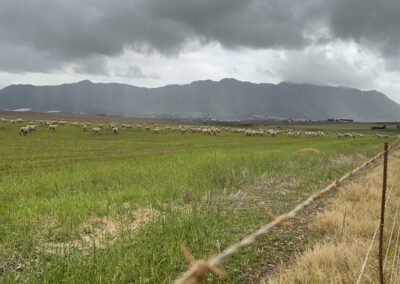While many of the top 100 companies listed on JSE Limited are currently calculating their carbon footprints, this is just the tip of the iceberg. Before long, most companies will need to calculate, reduce and disclose their environmental impact as a regulatory requirement. – and not just as part of an energy audit. This will likely lead to organisations requiring a team of carbon footprint reduction champions.
It is ironic that technical people are mostly responsible for calculating carbon footprints, while commerce people are responsible for doing the audits. If we do not find a way to establish a common ground for those calculating the footprints and those checking them, we are setting ourselves up for failure.
The 11th annual Green Building Convention is one of the key annual events that is organised by the Green Building Council of South Africa (GBCSA) that acts as a check in and building of common ground for all major market players and advocates of the green building movement. This year the convention theme is: THE RACE TO ZERO. The focus will be on buildings that achieve net zero carbon emissions, as well as building with net-zero water, waste and ecological impact.
This is in line with one of the latest and most exiting initiatives of the GBCSA: the ‘Net Zero’ Programme. Imagine a world where the built environment does not simply minimize its impact, but achieves neutrality or positive carbon emissions (i.e. a building that absorbs more greenhouse gas pollution compared to what it generates)?
A Net Zero/Net Positive carbon building is a radical idea and is defined by the GBCSA as “Highly energy-efficient buildings, with remaining energy demand supplied by on-site and/or off-site renewable sources, or through offsets”.
However, the GBCSA’s Net Zero Certification Scheme goes one step further by rewarding projects for completely neutralising (Net Zero) or positively addressing (Net Positive) their environmental impacts. This is not only for carbon, but also for water, waste and ecology. Net Zero certification is awarded over and above any project’s Green Star certification.
Should a project make use of carbon offsets to help achieve net zero or net positive status, then only African offset projects that are registered under one of the international carbon standards, the Gold Standard (GS) or the Verified Carbon Standard (VCS) are be eligible. A building project and/or property developer that make use of offsets would also be able to strengthen its CSI mandate, depending on the type of offset project it supports.Just imagine the build environment and world that awaits us!
For help along your climate journey, get in touch or speak with us at the Green Building Convention, 3 – 5 October 2018 at the Century City Conference Centre in Cape Town.
Franz Rentel
Country Director – South Africa at Climate Neutral Group
Franz.Rentel@climateneutralgroup.com
Dr Marco Lotz
Nedbank Sustainability Carbon Specialist
marcol@nedbank.co.za



